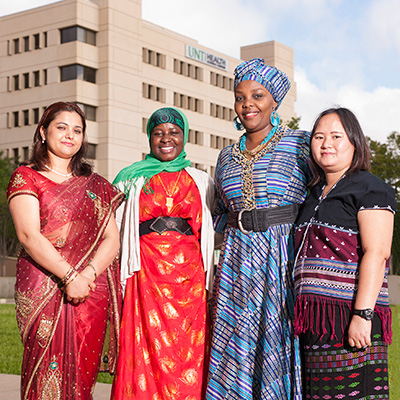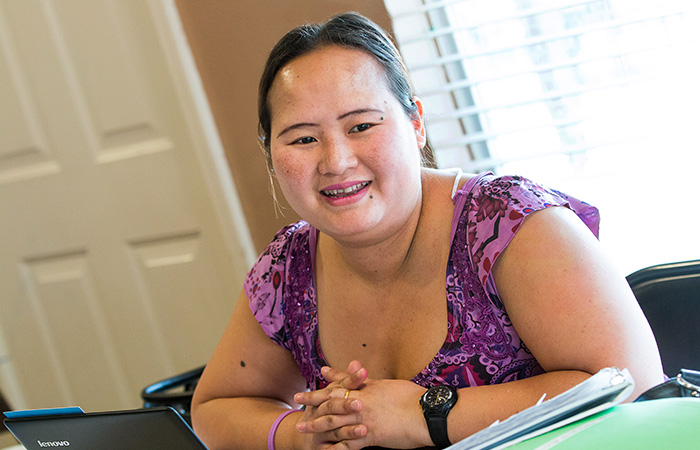Building bridges for new refugees
Hiking at night through the Burmese jungle to avoid soldiers in her war-ravaged country, Emelda Thein prepared to take a step when someone yelled that her foot hovered inches above a landmine.
Thein froze, slowly pulled her foot back and realized she’d nearly lost a leg – and maybe her life.
She was 9 years old.

Thein’s experience fleeing Burma gives her tremendous sympathy for refugee families making desperate, perilous treks to Europe. And it is why she works with UNT Health Science Center’s Building Bridges program as a “lay health educator,” filling gaps in services for the estimated 1,500 refugees who arrive in Tarrant County annually.
The number of refugees arriving here could soon grow. President Barack Obama announced recently the U.S. will accept more than 10,000 Syrian refugees in the next year.
“I got off the plane here and I was so scared and confused,” said Thein, 31, who arrived in the U.S. in 2010 after years living in a Thailand refugee camp. “I want to teach them what I wish someone had taught me.”
Thein and three other former refugees, Halimo Mudey, Laurette Rudasingwa and Radhika Subedi, primarily help refugee women navigate the health care system. Funded by a $1.3 million grant from the Cancer Prevention and Research Institute of Texas, the program has educated 213 refugees on health issues.
The Building Bridges program also gives women access to important health screenings, cervical and breast exams, and the HPV vaccine. They undergo screenings for Hepatitis B, a leading cause of liver cancer, because infection rates are high in their countries.
The U.S. federal resettlement process provides new refugees a case manager for eight months, but after that many are on their own, said Amy Raines-Milenkov, DrPh, Assistant Professor of Obstetrics and Gynecology.
“These women have already endured so many traumas,” said Dr. Raines-Milenkov, who leads the project. “They want to thrive here with their families, but without help and resources they just feel lost.”
Many refugees come from cultures where health care is only for the severely ill and the idea of preventive care is unfamiliar. Recently, a pap test performed on a refugee from Congo led to her being diagnosed with advanced stage cervical cancer. She will undergo surgery in October.
“It feels good to make a difference for these women,” Thein said. “We’ve been in their shoes.”







Social media